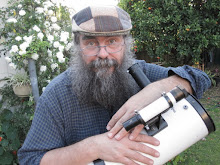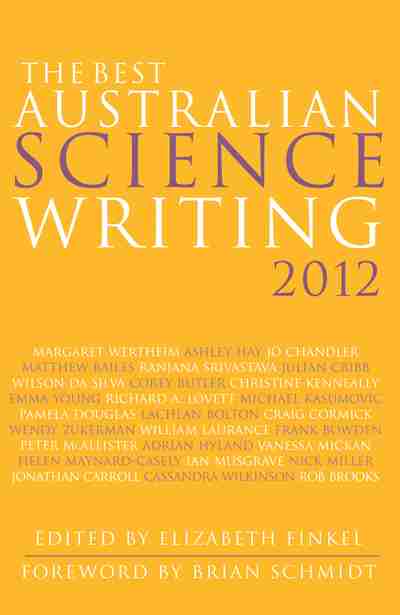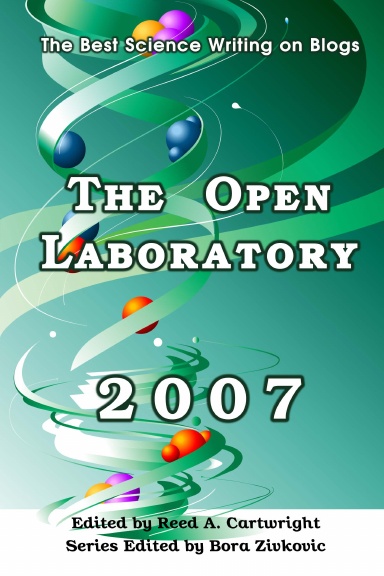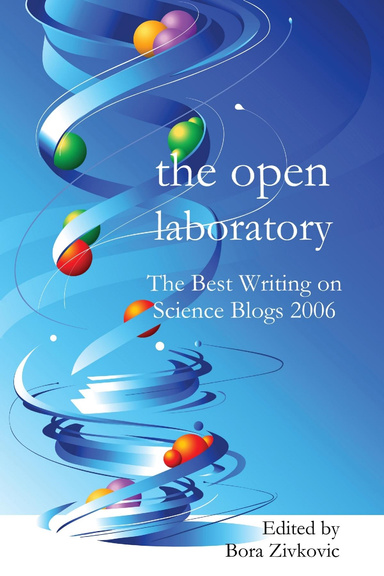Monday, June 20, 2005
This is your father on drugs
This post was inspired by posts by PZ Myers and Dave Thomas.
This is your father on drugs

He’s sitting at the end of the table, eyes half lidded, arms folded in front of him, head nodding slowly. Soon his head will sink onto his folded arms, and sleep will come. Before him is the bottle of beer that has driven him to the arms of Morpheus.
In my childhood, Dad wasn’t home much, he spent a lot of time in outback towns working on construction sites. When he came home he often drank. Some nights there was shouting, screaming and long slurred, rambling arguments, but my single most vivid image of my father is that quiet, slow slide as he drank himself into oblivion.
My Dad wasn’t alone, he was typical of working class Australians who had gone away to WWII and returned changed. They drank hard. On Friday nights (payday in those far-off pre electronic deposit days) our suburb resounded with drunken fights. Dad was neither the worst, nor the best. At that young age I knew there where families where drink didn’t rule, but I also knew that there was far, far worse out there. Memories are a tricky thing. My brother remembers Dad screaming to his mates who died in the war, but I mostly remember those long, alcohol-filled silences.
This is your father not on drugs
The same table, Dad is at the same place, but it is a decade on and we are all drinking cups of tea (our house ran on tea). Mum is giving one of her anti-aboriginal monologues. Years later I will learn of the tragedy that fuels the racism of my mother who is usually kindness and tolerance itself. Dad pipes up. “We’re all black, you know.”
Huh?
“We’re all black” he says again. “We’re all descendents of the Australopithicines, and they were black, so we are black". This is said with authoritative finality, because it was in Dad’s National Geographics. Most Australians of Mum and Dads age are imbued with a degree of racism, but Dad had grasped a fundamental truth, all humans are one, cousins, descendents of far-off hominids who one day walked out of Africa to cover the world in humanity. This is my most vivid memory of Dad.
Dad loved to read, he never went to High School, the bleak years of the Depression ruled that out for a working class lad, but he loved to read and read widely. He subscribed to National Geographic, and read it cover to cover. I read it too, Dad was happy for me to read his precious magazines, keep neat and tidy in library-like order. Its articles on stars and planets and space craft kept me entralled. In one issue was a full layout of the Apollo instrument panel. I would sit for hours pressing the photographed buttons imagining I was on the way to the Moon. Years later I would discover Dad’s Steinbeck’s, and archy and mehethibel and the books on Anthropology, but for the young me the collection of National Geographics was heaven, a gravitational mass of words and images that would eventually nudge me into the orbit of science.
In my childhood, Dad wasn’t home much, he spent a lot of time in outback towns working on construction sites. When he came home, he brought back strange minerals from mining towns and fossils. Those minerals and fossils lined the walls of my room until I left home. Even now, decades later, after moving across continents, I still have some of the fossils he gave me.
Unlike my mother, who tirelessly worked to ensure that my brother and I would have the opportunities denied to her and Dad, Dad never encouraged my academic ambitions directly. But when I was developing my interest in star gazing, he gave me his old binoculars. Sturdy military 10x50’s, I rested them on my window sill and cataloged the craters of the Moon that I could just see. Or I lay on my back in the back yard, absorbing the beauty of the Milky Way. Later, when I had bought a little 50mm refractor from saved up money, he made a better mount for me. I still use it. Later still, he took me around to a mate of his who made telescopes. We bought a mirror off him, and together he and I made the telescope to go with the mirror. Or rather Dad did it mostly, and I was regulated to occasional carrier of things. Dad was an artisan with his hands, he could work wood and metal with ease, making chairs, cupboards, tables. He even made his own collection of carving knives. The telescope worked beautifully, and the views through it were breath taking.
It must have been some regret to him that his eldest son was a complete fumble fingers, but then this was balanced by the fact that his eldest son was rarely on the same mental planet long enough to have a conversation with. Conversation wasn’t a big thing with Dad anyway. But that was fine by me, he was only loquacious when drunk. When home, he would wake me at 5.30 am before going to work, and we would sit in companionable silence, drinking tea in our small kitchen. When my astronomy was going full swing, I would wake him at 4.30 am with a cup of tea, go and finish my observations, then we would sit in companionable silence again.
I’m sure Dad would have been surprised to know that his fumble fingered, daydreaming, star-obsessed son would end up Patch Clamping nerve cells in Germany, an insanely delicate technique. But Dad died while I was in Germany, before I learnt Patch Clamping. When my brother rang I knew it had to be bad news, as my brother never rang me in Australia, let alone Germany.
At his funeral, a long line of friends told stories of a kind, humorous, hard-working man who helped build the Bowls club, stood by his mates, and was helping restore an old ship. Memory is a funny thing, people remember things differently, I didn’t remember the man they were describing. I remember the man drooping in front of the bottle, I remember the man connecting with our ancestors, the man who loved National Geographics. I remember a man of contradictions who I nonetheless loved and missed.
My father wasn’t the best father in the world, but he was a good father to me.
This is your father on drugs

He’s sitting at the end of the table, eyes half lidded, arms folded in front of him, head nodding slowly. Soon his head will sink onto his folded arms, and sleep will come. Before him is the bottle of beer that has driven him to the arms of Morpheus.
In my childhood, Dad wasn’t home much, he spent a lot of time in outback towns working on construction sites. When he came home he often drank. Some nights there was shouting, screaming and long slurred, rambling arguments, but my single most vivid image of my father is that quiet, slow slide as he drank himself into oblivion.
My Dad wasn’t alone, he was typical of working class Australians who had gone away to WWII and returned changed. They drank hard. On Friday nights (payday in those far-off pre electronic deposit days) our suburb resounded with drunken fights. Dad was neither the worst, nor the best. At that young age I knew there where families where drink didn’t rule, but I also knew that there was far, far worse out there. Memories are a tricky thing. My brother remembers Dad screaming to his mates who died in the war, but I mostly remember those long, alcohol-filled silences.
This is your father not on drugs
The same table, Dad is at the same place, but it is a decade on and we are all drinking cups of tea (our house ran on tea). Mum is giving one of her anti-aboriginal monologues. Years later I will learn of the tragedy that fuels the racism of my mother who is usually kindness and tolerance itself. Dad pipes up. “We’re all black, you know.”
Huh?
“We’re all black” he says again. “We’re all descendents of the Australopithicines, and they were black, so we are black". This is said with authoritative finality, because it was in Dad’s National Geographics. Most Australians of Mum and Dads age are imbued with a degree of racism, but Dad had grasped a fundamental truth, all humans are one, cousins, descendents of far-off hominids who one day walked out of Africa to cover the world in humanity. This is my most vivid memory of Dad.
Dad loved to read, he never went to High School, the bleak years of the Depression ruled that out for a working class lad, but he loved to read and read widely. He subscribed to National Geographic, and read it cover to cover. I read it too, Dad was happy for me to read his precious magazines, keep neat and tidy in library-like order. Its articles on stars and planets and space craft kept me entralled. In one issue was a full layout of the Apollo instrument panel. I would sit for hours pressing the photographed buttons imagining I was on the way to the Moon. Years later I would discover Dad’s Steinbeck’s, and archy and mehethibel and the books on Anthropology, but for the young me the collection of National Geographics was heaven, a gravitational mass of words and images that would eventually nudge me into the orbit of science.
In my childhood, Dad wasn’t home much, he spent a lot of time in outback towns working on construction sites. When he came home, he brought back strange minerals from mining towns and fossils. Those minerals and fossils lined the walls of my room until I left home. Even now, decades later, after moving across continents, I still have some of the fossils he gave me.
Unlike my mother, who tirelessly worked to ensure that my brother and I would have the opportunities denied to her and Dad, Dad never encouraged my academic ambitions directly. But when I was developing my interest in star gazing, he gave me his old binoculars. Sturdy military 10x50’s, I rested them on my window sill and cataloged the craters of the Moon that I could just see. Or I lay on my back in the back yard, absorbing the beauty of the Milky Way. Later, when I had bought a little 50mm refractor from saved up money, he made a better mount for me. I still use it. Later still, he took me around to a mate of his who made telescopes. We bought a mirror off him, and together he and I made the telescope to go with the mirror. Or rather Dad did it mostly, and I was regulated to occasional carrier of things. Dad was an artisan with his hands, he could work wood and metal with ease, making chairs, cupboards, tables. He even made his own collection of carving knives. The telescope worked beautifully, and the views through it were breath taking.
It must have been some regret to him that his eldest son was a complete fumble fingers, but then this was balanced by the fact that his eldest son was rarely on the same mental planet long enough to have a conversation with. Conversation wasn’t a big thing with Dad anyway. But that was fine by me, he was only loquacious when drunk. When home, he would wake me at 5.30 am before going to work, and we would sit in companionable silence, drinking tea in our small kitchen. When my astronomy was going full swing, I would wake him at 4.30 am with a cup of tea, go and finish my observations, then we would sit in companionable silence again.
I’m sure Dad would have been surprised to know that his fumble fingered, daydreaming, star-obsessed son would end up Patch Clamping nerve cells in Germany, an insanely delicate technique. But Dad died while I was in Germany, before I learnt Patch Clamping. When my brother rang I knew it had to be bad news, as my brother never rang me in Australia, let alone Germany.
At his funeral, a long line of friends told stories of a kind, humorous, hard-working man who helped build the Bowls club, stood by his mates, and was helping restore an old ship. Memory is a funny thing, people remember things differently, I didn’t remember the man they were describing. I remember the man drooping in front of the bottle, I remember the man connecting with our ancestors, the man who loved National Geographics. I remember a man of contradictions who I nonetheless loved and missed.
My father wasn’t the best father in the world, but he was a good father to me.



 Click to read about or order
Click to read about or order Click to read about or order
Click to read about or order Click to read about or order
Click to read about or order Click to read about or order
Click to read about or order




